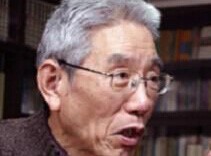LIU ZEHUA: Constitutional Confucianism is a contradiction in terms

For more than a decade, New Confucians, who advocate a Confucian constitution for the nation, have argued that the road to China’s future must be built on the foundations of its ancient past. Scholar Jiang Qing formulated the idea of the “wangdao”(Way of the King), meaning the “Way of the Humane Authority,” while Kang Xiaoguang put forward the notion of “Confucian elite autocracy” and Qiu Feng favors the historical tradition of Confucian constitutionalism. However, whether or not this ideology is really feasible remains in doubt.
If one takes into account the political dimension of Confucianism, its emphasis on morality and criticism of sovereigns are not necessarily meant to discredit the monarchy as an institution. Furthermore, the political logic of Confucianism is cultivated in the philosophy of yin and yang, concepts used to describe how opposite or seemingly conflicting forces are actually complementary.
Propositions of yin and yang derived from the complicated Confucian ideology are the expression of contradictory ideas: All under heaven are equal, but heaven is governed by the monarch. The ruler is respected and at the same time criticized.
It should be noted that these opposite propositions do not have equal status. One is primary, and the other is auxiliary. Though both sides complement one another, depend on each other for existence and influence each other, the primary and the auxiliary cannot be reversed and mutually transformed.
Therefore, the political essence of Confucianism is royal supremacy, the polar opposite of constitutionalism in modern times, which is aimed at restricting the power of rulers. However, this does not mean we can completely deny the value of Confucianism.
Over the years, the prevalent idea has been to consider ancient and modern thought as two halves of the same whole in the context of debates over the revival of Confucianism and traditional Chinese culture. Some insist on establishing a Confucian political order and applying the ancient ideology to modern society. These phenomena reflect an academic question worthy of further discussion.
Classical Confucianism, namely Confucianism before modern times, is an ideology peculiar to pre-modern society. It is characterized by three aspects: First, people are bound by a hierarchical system. Second, the purpose is to elevate the monarch above his subjects, requiring all to submit to the monarch’s authority. Third, classical Confucianism functions as a tool the monarch uses to reign. Therefore, it is undesirable to graft classical Confucianism onto modern society because this runs counter to historical development.
Pre-modern ideas are a resource rather than the mainstay for modern society. At present, however, some scholars confuse the rejuvenation of the Chinese nation and culture with the revival of Confucianism. In particular, the status of classical Confucianism receives too much praise despite the fact it is incompatible with the needs of modern society.
In fact, classical Confucianism is a thing of the past and is unable to be fully revived because the society we are living in has undergone tremendous changes. Even in the era of Confucius, his disciples had already diverged from Confucianism, and Confucianism was developed into different schools after the death of its founder. This indicates that it is not only impossible but harmful to revive Confucianism and establish a Confucian political order.
In a word, at the core of Confucian political theory is royal supremacy instead of constitutionalism. Rather than restricting the power of the government they are trying to establish, supporters of a Confucian constitution aim to limit popular sovereignty and people’s right to participate in politics.
It is plain that their real intention is to bring about a Confucian dictatorship in the name of constitutionalism. And it is not difficult to understand why they are such strong advocates of the radical and adventurous idea to substitute Confucianism for Marxism as the mainstream ideology.
In his book On Practice, Chairman Mao Zedong opposed phrase mongering from the left wing. In fact, believers of Confucian constitutionalism are representatives of this current of thought who disregard the objective laws and actual needs of historical development and defy the real aspirations of the people. It is beyond imagination what the consequences would be if their proposition were put into practice.
Liu Zehua is a professor from the School of History at Nankai University.
